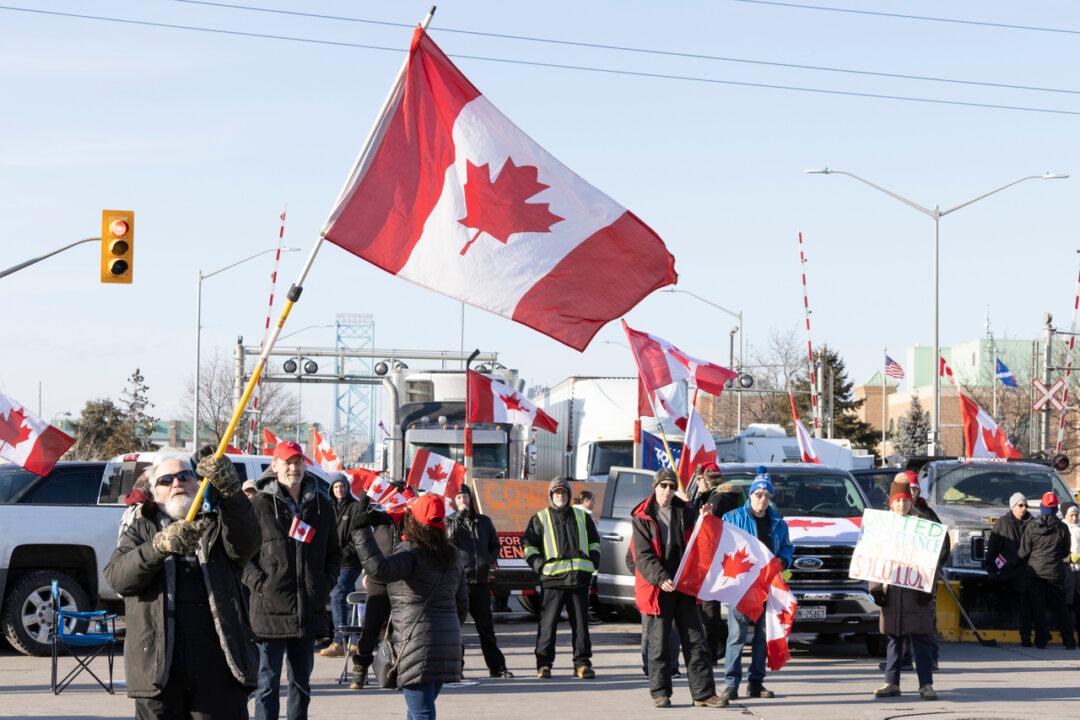The Ontario government has introduced a new bill that would ban illegal blockades of international border crossings and give police new powers to suspend drivers’ licences and seize the licence plates of vehicles used in such blockades.
“The intent of this act is to protect critical transportation infrastructure such as international bridges and airports from unlawful disruptions that, as demonstrated by recent events in Windsor, hurt people and businesses,” the government said in a March 21 news release.





